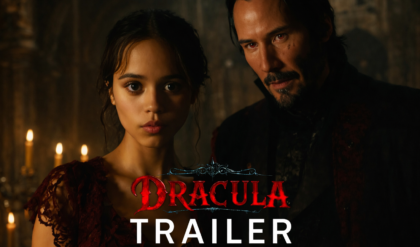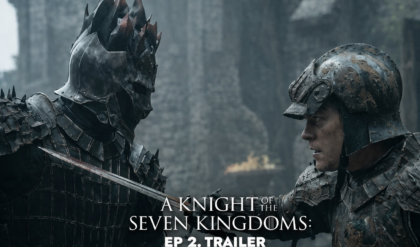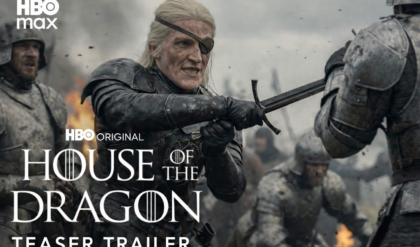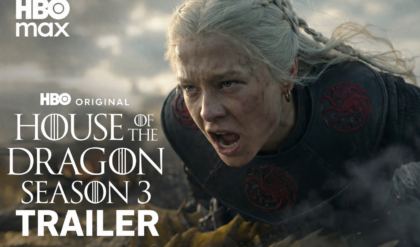Dragon Age: The Veilguard, BioWare’s long-awaited return to Thedas, launched in October 2024 with a $200 million budget and a decade of fan anticipation behind it. Promising a triumphant revival after Inquisition’s cliffhanger, it aimed to unite players as Rook, a new hero leading a ragtag team against ancient elven gods. Yet, by January 2025, the verdict was grim: 1.5 million players—far below EA’s 3 million target—marked it as the franchise’s biggest flop. The game’s failure triggered a 17% stock plunge for EA, a $6 billion loss, and whispers of BioWare’s demise. Fans now lament on X and Reddit: “In the wake of Dragon Age: The Veilguard’s failure, the Dragon Age series always deserved better than this.” Let’s unravel why it faltered, how it betrayed its roots, and what it means for a saga that once defined RPG greatness.
The Build-Up: A Decade of Hope
Dragon Age has been a cornerstone of RPG lore since Origins captivated players in 2009 with its gritty world, tactical combat, and choices that rippled across sequels. Dragon Age II (2011) polarized with its rushed scope, but Inquisition (2014) soared, winning GOTY with its sprawling Thedas and Solas’ jaw-dropping twist. Fans waited ten years for Veilguard, enduring BioWare’s stumbles—Mass Effect: Andromeda’s bugs, Anthem’s live-service flop—and EA’s meddling, which forced Veilguard through reboots as a heist game and MMO before settling on single-player. Hype peaked with trailers of Rook’s team, a vibrant Thedas, and promises of “BioWare’s best.” But the cracks showed early.
Development hell left scars: key writers from Origins to Inquisition—David Gaider included—had long departed, and Veilguard’s team inherited a Frankenstein project. EA’s push for broad appeal diluted its identity, axing deep reactivity for a streamlined action-RPG. When it launched, Veilguard earned an 84 from critics for its polish and companions, but players recoiled. On Steam, it peaked at 77,000 concurrents—dwarfed by Inquisition’s 11 million lifetime players. X posts raged: “This isn’t Dragon Age—it’s a Marvel movie with swords.” Sales cratered below 500,000, per some estimates, with 30,000 refunds signaling rejection.
Where It Went Wrong: A Betrayal of Roots
Veilguard’s failure stings because it abandoned what made Dragon Age special. Origins thrived on tactical combat and origins shaping your Warden’s tale—noble, mage, outcast. Inquisition balanced scale with choice, letting your Inquisitor sway nations. Veilguard pivoted hard to action, stripping party control and turning battles into flashy combos. Fans on Reddit mourned, “I miss pausing to plan—now it’s just button-mashing.” The camera sucked, lock-on slipped, and animations lagged, per PC Gamer, making fights feel sloppy despite their spectacle.
Storytelling, BioWare’s crown jewel, faltered too. Solas, the Dread Wolf whose Inquisition twist fueled a decade of theories, was sidelined for two cartoonishly evil gods, Ghilan’nain and Elgar’nan. Rook, a blank-slate “nobody,” lacked the gravitas of past heroes, with dialogue wheels spitting quips over substance. “Why am I here?” one X user asked, echoing Rook’s aimless arc. Only three Inquisition choices carried over—your romance, Inquisitor’s fate, the Well of Sorrows—rendering prior games’ weight moot. A Steam review spat, “Everything I did in Origins and II? Pointless.”
Thedas itself dazzled—Minrathous’ neon spires, Rivain’s sunny coasts—but felt sterile. Companions like Neve and Davrin shone in personal quests, yet lacked the edge of Morrigan or Anders. “They’re too nice,” a Reddit thread griped. “No one argues or hates mages.” Exploration, once a joy, leaned on glowing loot and linear paths, not Origins’ organic discovery. EA’s live-service ghost lingered—fears of microtransactions (absent, thankfully) and a “safe” design alienated the core faithful expecting nuance, not a blockbuster romp.
The Fallout: A Franchise in Peril
The numbers don’t lie. Veilguard’s 1.5 million players—many via Game Pass, not sales—paled next to Anthem’s 5 million or Jedi: Fallen Order’s 8 million in months. EA’s CEO Andrew Wilson blamed its lack of “shared world” features, per X posts, doubling down on live-service dreams despite Anthem’s crash. BioWare’s game director left in December 2024, and layoffs loom, with PC Gamer asking, “Is this the end?” The $6 billion stock hit on January 23, 2025, cemented Veilguard as a catastrophe, not a comeback.
Fans feel cheated. “I waited ten years for this?” one X post cried. On Steam, “Mostly Positive” (7,532 reviews) belies Metacritic’s 3.3 user score, where review-bombs targeted “woke” elements—LGBTQ characters, a non-binary arc—though most critiques hit writing and mechanics. “It’s not about politics,” a Reddit user clarified. “It’s about losing what Dragon Age was.” Nostalgia drives replays of Inquisition and Origins, with YouTubers like Mark Darrah hinting EA’s greed—not devs—sank the ship.
The community’s split. Some laud Veilguard’s visuals and combat, with IGN calling it “a reinvigorating sequel.” Others see a hollow shell, a “Disney-fied” detour from Dragon Age’s dark soul. Twitch streams of Origins’ Archdemon battles spike, captioned, “This was peak.” Thedas’ lore—Grey Wardens, Blights, mage-templar wars—feels untapped, wasted on a game that ducked Solas’ potential for generic gods.
What It Deserved: A True Legacy
Dragon Age deserved better than Veilguard’s fate. Origins juggled six backgrounds with confidence, letting your Warden’s choices echo to Inquisition. II, flaws and all, dared to focus on Hawke’s personal saga. Inquisition married scale to consequence—disband the Inquisition or not? Veilguard could’ve been that: a bold capstone chasing Solas across northern Thedas, weaving past heroes like Alistair or Hawke into a finale honoring 15 years of stakes. Instead, it soft-rebooted, chasing newbies while snubbing vets.
BioWare’s old guard—Gaider, the Origins writers—crafted a Thedas of moral grayness: templars vs. mages, elves vs. humans. Veilguard’s “good guys vs. evil gods” ditched that depth. Imagine a game where Rook’s faction choice—Crow, Warden, Veil Jumper—shaped alliances, not just dialogue; where Solas’ ritual split the party, forcing betrayal or redemption. “We deserved Origins’ heart, not Anthem’s shell,” an X post mourned.
The series earned a send-off reflecting its highs: tactical depth or hybrid combat, not arcade flash; a story tying Thedas’ threads, not snipping them. Fans on Reddit dream of modders fixing Veilguard, but its core—EA’s “broad appeal” mandate—can’t be patched. “It’s over,” TheGamer.com declared, noting every writer from Origins to Veilguard is gone. EA might shelve Dragon Age or hand it off, but its soul feels lost.
The Bigger Picture: RPGs and Greed
Veilguard’s flop mirrors gaming’s tug-of-war. Larian’s Baldur’s Gate 3 (2023) proved RPGs thrive on choice and fidelity, not streamlining—15 million sold, no live-service needed. Elden Ring and Fallout’s TV buzz show depth still wins. Veilguard’s “safe” pivot—less RPG, more action—chased trends (God of War) but missed the mark, per NPR’s “streamlined blockbuster” tag. EA’s billion-dollar vision, per Darrah, forced a square peg into a round hole, ignoring why Inquisition hit 11 million: fans loved Thedas, not checklists.
X users rail: “EA killed BioWare’s magic.” Anthem’s scars and Veilguard’s reboot hell suggest a publisher allergic to risk, not devs lacking vision. “They deserved better,” a Reddit thread sighed, saluting writers who fought EA’s yoke. Thedas’ tapestry—Ferelden’s mud, Orlais’ masks—warranted a finale of passion, not a corporate shrug.
Challenges to Redemption
Not all hate Veilguard. Its level design—Arlathan’s ruins, Weisshaupt’s siege—wows, per IGN Nordic. Companions’ arcs, like Taash’s lore drops, hint at BioWare’s spark. But the disconnect gnaws: “It’s fun, not Dragon Age,” a Steam review said. Combat’s pace thrills some, alienates others craving Origins’ chessboard. Solas’ sidelining—despite Trespasser’s tease—feels like a bait-and-switch, with late-game cameos too little, too late.
EA’s fix? More live-service, Wilson hints, risking further fan revolt. BioWare’s next, Mass Effect 5, looms under Veilguard’s shadow—can it dodge EA’s axe? “No one who touched these stories can tell them again,” TheGamer.com noted, mourning lost voices. Players cling to Inquisition saves, praying for a miracle.
Looking Ahead
Veilguard’s ashes smolder. Steam counts tick up via discounts—PlayStation Plus added it March 2025—but the wound festers. Fans replay Origins, mod Inquisition, and pen fix-it fic on AO3, captioned, “This is our Thedas.” YouTubers dissect “What Went Wrong,” pinning EA’s greed over BioWare’s heart. “It deserved a high note,” IGN sighed, praising its finale’s choices yet damning its drift.
For Dragon Age, the road forks: EA could freeze it, license it, or force another reboot. Fans demand a return to roots—tactics, reactivity, grit—not Veilguard’s gloss. “We built this world,” an X post said, sharing a Warden’s oath. “It deserved better than this.” BioWare’s legacy teeters—can it reclaim Thedas, or is this the end? As Rook’s Lighthouse fades, Dragon Age’s faithful hold vigil, hoping its dragons rise again.





